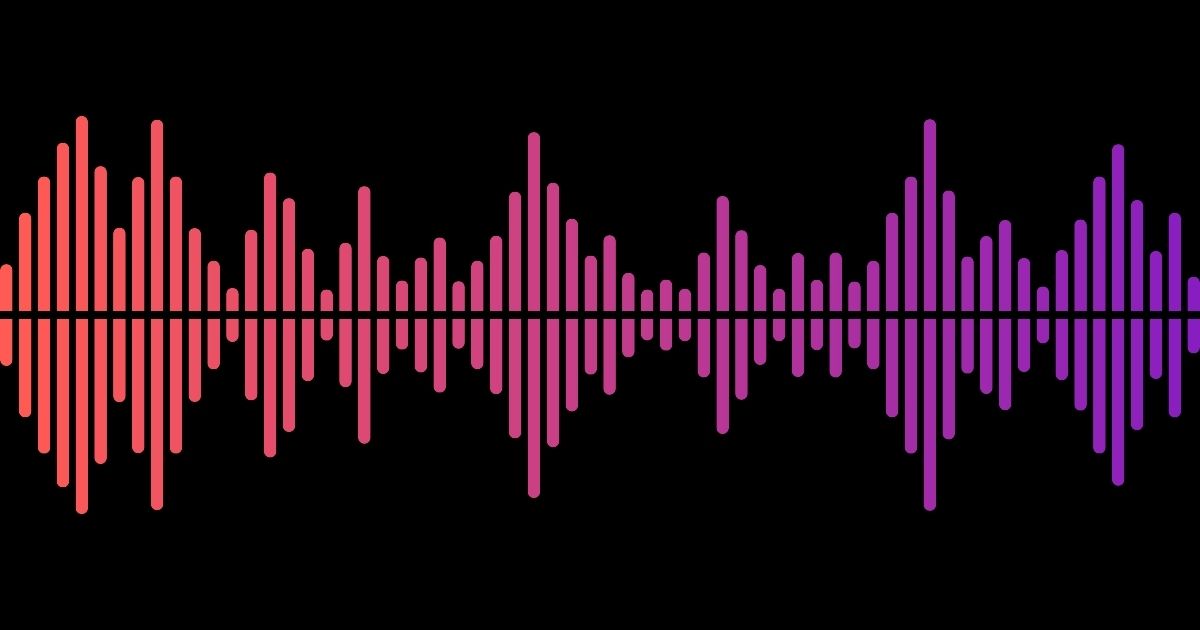The Best Podcast Formats to Engage Your Audience: Tips and Examples

Are you looking to start a podcast or enhance your current one? Understanding podcast formats is crucial to your success.
In this guide, we'll explore the different podcast formats, key elements to consider, and how AI tools like SummarAIze can help you grow your podcast after choosing the right format for you.
Understanding Podcast Formats
Choosing the right podcast format can significantly impact your audience's engagement and retention.
Formats dictate the structure and flow of your podcast, making it essential to select one that aligns with your content and audience preferences.
Here are some common podcast formats to consider:
- Interview: A host interviews guests on various topics.
- Monologue: A single host discussing topics or storytelling.
- Panel: Multiple hosts or guests discussing a topic together.
- Documentary: In-depth investigation into a particular topic.
- Storytelling/Narrative: Fictional or non-fictional storytelling.
- Hybrid: A combination of multiple formats.
Key Elements of a Podcast Format
When designing your podcast, several elements play a critical role in shaping your show's identity. These elements include the length of your episodes, the number of hosts, the release frequency, and the content style.
Each of these factors can influence how your audience perceives and engages with your podcast.
Length
The length of your podcast episodes is an essential element to consider when choosing a format.
The optimal length can vary depending on your content, audience preferences, and goals.
- Short-form podcasts: Typically less than 20 minutes, perfect for bite-sized episodes that deliver quick insights.
- Medium-length podcasts: Between 20-50 minutes, ideal for more in-depth exploration without overwhelming podcast listeners.
- Long-form podcasts: Over 50 minutes, suitable for deep dives into complex topics like investigative podcasts or detailed discussions.
Choosing the right length can affect listener engagement. For instance, true crime podcasts often thrive as long-form content due to the in-depth analysis required.
Number of Hosts
Another crucial element to consider when determining your format is the number of podcast hosts.
Here the two options you have when it comes to picking hosts:
- Single host: Provides a personal and focused approach, often seen in monologue podcasts.
- Multiple hosts: Offers diverse perspectives and dynamic interactions, common in panel and roundtable podcasts.
Most top-ranked podcasts feature a single host, but the presence of guests or co-hosts can add variety and depth.
Release Frequency
- Weekly: Keeps your audience engaged with regular content.
- Bi-weekly or monthly: Can work well for highly-produced shows or niche topics.
Regular release schedules help build a loyal listener base and improve your podcast's ranking on platforms.
Content Style
The content style of your podcast is another crucial element to consider when choosing a format. This refers to the tone, approach, and overall vibe of your show.
Some common content styles include:
- Deep Reporting: In-depth examination or analysis of a topic, often seen in true story and investigative podcasts.
- Interviews: Engaging conversations with guests, making interview podcasts and interview formats highly popular.
- Commentary: Hosts offer opinions and insights on various subjects, suitable for conversational podcasts.
- Recap: Summaries of TV shows, movies, or other media, like the popular "Office Ladies" podcast.
- News Summary: Brief overviews of current events, perfect for keeping listeners up-to-date.
- Other Styles: Unique formats like soundscapes or role-playing games, enhancing the immersive experience.
Each style has its own strengths and appeals to different audience preferences.
Detailed Analysis of Popular Podcast Formats
Different podcast formats come with their own set of benefits and challenges.
Here, we dive deeper into some of the most popular formats to help you decide which one is best for your content and audience.
Interview-Based Shows
- Examples: "The Joe Rogan Experience," "How I Built This."
- Benefits: Offers diverse content through guest insights and expert interviews.
- Challenges: Requires booking guests and preparing interview questions.
Narrative Storytelling
- Examples: "Serial," "Lore."
- Engagement: Captivates listeners with compelling stories and complex topics.
- Techniques: Focus on strong narratives, sound design, and pacing, often utilizing sound effects and a cast of voice actors.
Panel Discussions
- Examples: "The View," "The Daily."
- Success Tips: Manage multiple voices and ensure balanced participation. Panel podcast formats can be very dynamic and engaging.
Essential Tools and Techniques for a Successful Podcast
Creating a successful podcast goes beyond selecting a format.
You also need the right tools and strategies to produce high-quality content and promote it effectively.
Let's explore the essential tools and techniques that can elevate your podcasting game.
Quality Equipment
Investing in good microphones, headphones, and recording software is crucial to ensure professional sound quality. High-quality equipment can make a significant difference in how your podcast is perceived by listeners.
Promoting Your Podcast
Promoting your podcast effectively is essential to grow your audience and keep them engaged. Here are some strategies to consider:
Social Media Promotion
Utilizing social media platforms is one of the most effective ways to promote your podcast and engage with your audience. Here are some key tips for successful social media promotion:
- Create dedicated social media accounts for your podcast on popular platforms like Facebook, Twitter, Instagram, and LinkedIn.
- Regularly share updates about new episodes, behind-the-scenes content, guest announcements, and more .
- Engage with your audience by responding to comments, hosting live Q&A sessions, and running polls or contests.
To make promoting on social easier, you can use tools like SummarAIze that automatically create social content from your podcast with AI
Email Marketing
Another effective strategy for promoting your podcast and engaging with your audience is email marketing. Building an email list of dedicated listeners can help you stay connected with them, notify them about new episodes, and drive traffic to your podcast platform.
AI tools like SummarAIze can also be helpful for engaging your email list by automatically converting your episodes into summaries and email news.
Using AI to Help Grow Your Show
Tools like SummarAIze offers various AI-powered features that can streamline your podcasting efforts and enhance your content including:
- Content Repurposing: Transform your podcast episodes into social media posts, blogs, emails, and video clips.
- Show Notes and Episode Titles: Automate the creation of detailed show notes, engaging episode titles, and descriptions.
- Timestamps and Quotes: Use AI to generate accurate timestamps and highlight quotes for promotional use.
- Overall Automation: Streamline various tasks to save time and enhance productivity..
Final Thoughts on Podcast Formats
Understanding and implementing the right podcast format, coupled with essential tools and techniques, can elevate your podcasting game.
With AI-powered tools like SummarAIze, you can efficiently repurpose content and automate numerous tasks, making your podcast more engaging and easier to manage.
Ready to take your podcast to the next level? Try SummarAIze for enhancing your podcast content today.
Podcast Formats FAQ
What are the most common types of podcast formats?
The most common podcast formats include:
- Interview: A host interviews guests on various topics. Examples include "The Joe Rogan Experience."
- Monologue: A single host discusses topics or tells stories, like Bill Burr’s "Monday Morning Podcast."
- Panel Shows: Multiple hosts or guests discuss a topic together, such as "The View."
- Non-Fiction Narrative: Storytelling that reveals real events, often seen in true crime podcasts like "Serial."
- Fiction Narrative: Storytelling with fictional plots, often involving sound effects and voice actors, such as "Welcome to Night Vale."
- Hybrid: A mix of various formats to suit diverse content needs, allowing flexibility in presentation.
What is the most popular podcast type?
The interview podcast format is one of the most popular types. It typically involves a host (or hosts) speaking with one or more guests each episode, providing unique insights or expertise on given topics. Examples include "The Joe Rogan Experience" and "How I Built This"."
What are the steps necessary to plan a podcast?
To plan a podcast, follow these steps:
- Define Your Concept: Choose a topic you're passionate about and identify your target audience.
- Format and Structure: Decide on your podcast format (e.g., interview, monologue, panel).
- Create a Content Plan: Outline your episodes, topics, and guest list.
- Equipment and Software: Invest in quality recording equipment and editing software.
- Record and Edit: Record your episodes, then edit for clarity and quality.
- Publish and Promote: Choose a hosting platform, publish your episodes, and promote them on social media and other channels.
How do I categorize my podcast?
Categorize your podcast by identifying the main genre and sub-genres it fits into. Common categories include comedy, news, true crime, sports, and education.
Choose categories that accurately represent your content to attract the right audience. Most podcast platforms allow you to select multiple categories to ensure your show reaches its intended listeners .
Can you launch a podcast without interviewing guests?
Yes, you can launch a podcast without interviewing guests. Formats such as monologues, where a single host discusses topics or tells stories, and narrative podcasts, which can be either fictional or non-fictional, do not require guest interviews. These formats focus on the host’s content delivery and storytelling abilities.
What is the difference between podcast styles and format?
Podcast format refers to the structure of the show (e.g., interview, monologue, panel), while podcast style pertains to the way content is presented within that format (e.g., casual conversation, scripted narrative, deep dive into topics). The format provides the framework, and the style adds the unique touch to how the content is delivered and perceived.
What are some unique, less common podcast ideas or formats?
Some unique and less common podcast formats include:
- Podcast Theater: Fictional storytelling similar to radio dramas, using voice actors and sound effects. Examples include "We’re Alive" and "Welcome to Night Vale."
- Repurposed Content: Transforming existing content from blogs, videos, or live shows into podcast episodes, like "The Moth."
- Experimental Podcasts: Combining different formats and styles, such as hybrid formats that mix interviews, narratives, and panel discussions within a single show.
These formats allow creators to explore innovative ways to engage their audience and stand out in the crowded podcasting space.
Turn your audio and video content into 100s of assets in minutes
With SummarAIze, you no longer have to repurpose your content manually.
Use our AI to 10x content you've already produced and help distribute it across multiple channels.
Related articles

Podcast Marketing: Proven Strategies to Grow Your Audience in 2024

Podcast Name Ideas: Tips, Frameworks, and Examples

